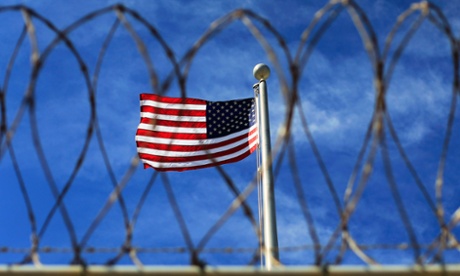A new report uncovers the role of US psychologists in torture and criticizes the American Psychological Association for supporting interrogation in the name of national security

"This week the Institute on Medicine as a Profession (IMAP) and the Open Society Foundations (OSF) have published the most comprehensive study on the role of psychologists in the War on Terror. At 269 pages,the full report is as detailed as it is grim, concluding that American psychologists collaborated extensively with the Department of Defense, the Department of Justice, and the CIA to develop a range of interrogation methods used in Afghanistan, Iraq and Guantánamo Bay.
The list of methods is horrifying: beatings, exposure to extreme cold, shackling, repeated slamming into walls, sleep deprivation, sensory deprivation, exposure to prolonged white noise and yelling, forced nakedness, exploitation of phobias, slaps to the face and abdomen, cramped confinement, prolonged stress positions (such as having hands and feet chained to the floor), forced feeding via gastrointestinal tubing, sexual and religious humiliation, forcible restraint of the head, deprivation of basic items such as sheets, blankets and mattresses (termed "comfort items"), threats to the detainee’s family, asphyxiation, andwaterboarding. [God Bless America!]
The report documents how psychologists consulted with the military under the Orwellian euphemism of "safety officers". Their official role was to work in Behavioral Science Consultation Teams to "identify vulnerabilities of detainees and collaborate with interrogators in exploiting them". Psychologists were selected for these positions based on professional training in clinical and forensic psychology. Yet while clearly valuing these qualifications, the military classified the psychologists as "combatants" rather than health practitioners, a move which enabled them to bypass normal ethical standards.
Those ethical standards themselves are unclear. The American Psychological Association (APA) – the official professional body for psychologists in the US – officially rejects torture but it also supports the role of psychologists in interrogation: "It is consistent with the APA Ethics Code for psychologists to serve in consultative roles to interrogation and information-gathering processes for national-security related purposes". The APA has yet to indicate which, if any, of the methods listed in the IMAP/OSF report would be consistent with its ethical policy.
The position of the British Psychological Society is even less clear. On the one hand the Society condemns torture yet at the same time remains silent on whether psychologists can assist with interrogation or other military objectives. As with the APA's policy, the point at which interrogation becomes abuse is left unsaid, the boundaries of unethical conduct given room to move.
The report makes a number of concrete recommendations, calling for US president Barack Obama to apply more strict prohibitions on the use of "sleep deprivation, isolation, exploitation of fear, and other interrogation methods that violate international standards". It also urges the APA to clarify its ethical policy and "repudiate the report of its Presidential Task Force…that condones the participation of psychologists in interrogation".
These are undoubtedly vital reforms, but the facts uncovered by this study raise even more fundamental questions. In the quest for national security, is there a genuine balance to be met between the ideologies of "do no harm" and "prevent harm being done"? At what point (if any) is it morally acceptable for psychologists to be deployed as weapons of war? As important as it is for the psychological profession to clarify its policies on these issues, it is also not for psychologists alone to provide the answers. That responsibility is shared by all citizens of a free society.

No comments:
Post a Comment